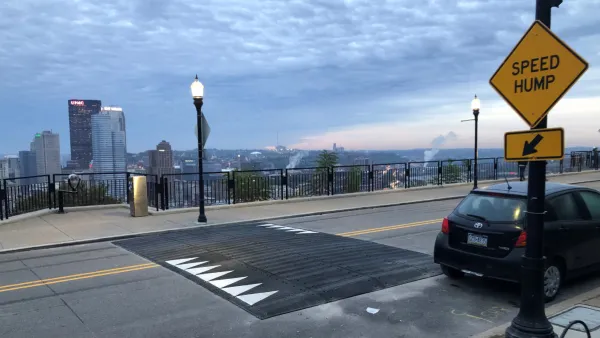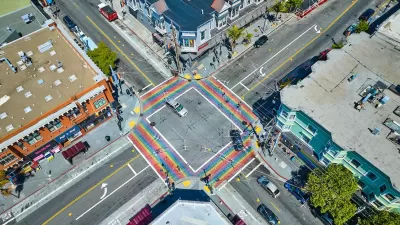A hearing on pedestrian infrastructure in Dallas—which is proving exceptionally deadly this year—reveals the sharp political divide on how to make streets safe for walking.
"So far in 2015, 32 pedestrians have been killed while trying to cross Dallas streets — the same number killed during all of 2014, according to a briefing presented to the Dallas City Council’s Public Safety Committee," reports Robert Wilonsky.
The rub: some have a difference of opinion of why so many pedestrians have died. "That very same briefing, prepared and presented by Dallas police and the Department of Street Services, maintains that 24 of this year’s fatalities were caused when a pedestrian failed to yield to a vehicle. And, further down: 'A majority of pedestrian fatalities in the City are due to pedestrian error.'"
On the other side of the argument is Council member Philip Kingston, who says "pedestrians aren’t to blame when they get run over. It’s 'the infrastructure that places the pedestrian in harm’s way' that’s to blame. 'It’s not people being stupid,' he said. Beat. 'Occasionally, sure.' But not always. Not most of the time."
FULL STORY: As fatalities rise, says Philip Kingston, Dallas must stop ‘building streets that hurt pedestrians’

Planetizen Federal Action Tracker
A weekly monitor of how Trump’s orders and actions are impacting planners and planning in America.

Maui's Vacation Rental Debate Turns Ugly
Verbal attacks, misinformation campaigns and fistfights plague a high-stakes debate to convert thousands of vacation rentals into long-term housing.

San Francisco Suspends Traffic Calming Amidst Record Deaths
Citing “a challenging fiscal landscape,” the city will cease the program on the heels of 42 traffic deaths, including 24 pedestrians.

Amtrak Rolls Out New Orleans to Alabama “Mardi Gras” Train
The new service will operate morning and evening departures between Mobile and New Orleans.

The Subversive Car-Free Guide to Trump's Great American Road Trip
Car-free ways to access Chicagoland’s best tourist attractions.

San Antonio and Austin are Fusing Into one Massive Megaregion
The region spanning the two central Texas cities is growing fast, posing challenges for local infrastructure and water supplies.
Urban Design for Planners 1: Software Tools
This six-course series explores essential urban design concepts using open source software and equips planners with the tools they need to participate fully in the urban design process.
Planning for Universal Design
Learn the tools for implementing Universal Design in planning regulations.
Heyer Gruel & Associates PA
JM Goldson LLC
Custer County Colorado
City of Camden Redevelopment Agency
City of Astoria
Transportation Research & Education Center (TREC) at Portland State University
Jefferson Parish Government
Camden Redevelopment Agency
City of Claremont





























